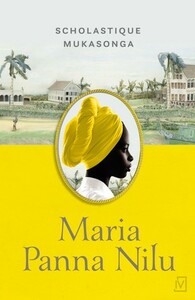Take a photo of a barcode or cover
emotional
reflective
dark
sad
slow-paced
Plot or Character Driven:
Character
Diverse cast of characters:
Yes
adventurous
challenging
dark
emotional
informative
mysterious
reflective
sad
tense
slow-paced
Plot or Character Driven:
A mix
Strong character development:
Yes
Loveable characters:
Complicated
Diverse cast of characters:
Yes
Flaws of characters a main focus:
Yes
dark
emotional
funny
informative
mysterious
sad
tense
medium-paced
Plot or Character Driven:
A mix
Strong character development:
Complicated
Loveable characters:
Complicated
Diverse cast of characters:
Yes
Flaws of characters a main focus:
Yes
dark
informative
reflective
sad
fast-paced
Plot or Character Driven:
Character
Strong character development:
No
Loveable characters:
Complicated
Diverse cast of characters:
Yes
Flaws of characters a main focus:
No
The book is set in the years after Rwandan independence and ends with the beginning of the genocide. In many ways the experience of the girls at the elite college of Our Lady of the Nile is like that of many young women of their age--though they can't ignore that serious things are happening in the background, they feel curious and excited about the world, have high hopes about what they will find at the end of their sequestration. Generally speaking they are expected to become the wives of powerful men, exchanged to establish marriage alliances, but they have dreams of adventure, visiting new places, making names for themselves, of not being married to a minister, but of becoming ministers themselves.
There are many funny moments, but the shadow lingers. The situation is tense between the Hutu and Tutsi pupils. One of the girls is the daughter of a powerful general, who repeats his rhetoric that the Tutsi ought to be punished for the crimes they have committed against the "majority people." Others agree, or tolerate it because of her father's influence. The support given to the Tutsi girls, who already suffer from discrimination even at the hands of some teachers, must be given to them in private for fear of retaliation. The Europeans who remained do not know how to react to the situation, they carry on as if everything were normal, especially as their governments have ordered them not to intervene. It's darkly humorous, how Europeans are famous for their meddling, but were helpless, or made themselves helpless to prevent the genocide. Still, the whites are not the main characters of this book, and most are not even named. The girls are at the heart of it, how they navigate coming of age and the fragile social relations within the school. Ethnic conflict turns to violence against fellow Africans--the author makes reference to the grievances between two groups, but also the irrationality of how things happened, how many were moved by desire for personal gain or the emotional words of politicians, many times knowing that what was being said was exaggerated or untrue.
The resentment built over years could be rationalised, it could be understood, not so the disproportionate response that led to the deaths of hundreds of thousands of people. Though the Europeans introduced structures that caused conflict between different ethnic groups, creating obstacles for the development of the new nation, it was still local people who made the decisions that led to civil war. I believe in history as a process, but I also believe in free will, that each human has the capacity and responsibility to make a choice. The microcosmos of Rwanda of the elite girls' lycée seems to follow that logic also, the characters are active, they go out into the world, some of them act with kindness, others bring about terrible events, having convinced themselves that they are doing something good--or to abuse their power over others.
I recommend this book. In spite of its serious subject matter, it has some bizarre scenes such as the visit of Queen Fabiola--to her, business as usual--right as the conflict is about to explode.
There are many funny moments, but the shadow lingers. The situation is tense between the Hutu and Tutsi pupils. One of the girls is the daughter of a powerful general, who repeats his rhetoric that the Tutsi ought to be punished for the crimes they have committed against the "majority people." Others agree, or tolerate it because of her father's influence. The support given to the Tutsi girls, who already suffer from discrimination even at the hands of some teachers, must be given to them in private for fear of retaliation. The Europeans who remained do not know how to react to the situation, they carry on as if everything were normal, especially as their governments have ordered them not to intervene. It's darkly humorous, how Europeans are famous for their meddling, but were helpless, or made themselves helpless to prevent the genocide. Still, the whites are not the main characters of this book, and most are not even named. The girls are at the heart of it, how they navigate coming of age and the fragile social relations within the school. Ethnic conflict turns to violence against fellow Africans--the author makes reference to the grievances between two groups, but also the irrationality of how things happened, how many were moved by desire for personal gain or the emotional words of politicians, many times knowing that what was being said was exaggerated or untrue.
The resentment built over years could be rationalised, it could be understood, not so the disproportionate response that led to the deaths of hundreds of thousands of people. Though the Europeans introduced structures that caused conflict between different ethnic groups, creating obstacles for the development of the new nation, it was still local people who made the decisions that led to civil war. I believe in history as a process, but I also believe in free will, that each human has the capacity and responsibility to make a choice. The microcosmos of Rwanda of the elite girls' lycée seems to follow that logic also, the characters are active, they go out into the world, some of them act with kindness, others bring about terrible events, having convinced themselves that they are doing something good--or to abuse their power over others.
I recommend this book. In spite of its serious subject matter, it has some bizarre scenes such as the visit of Queen Fabiola--to her, business as usual--right as the conflict is about to explode.
adventurous
challenging
dark
funny
sad
tense
medium-paced
Plot or Character Driven:
A mix
Strong character development:
Complicated
Loveable characters:
Complicated
Diverse cast of characters:
Yes
Flaws of characters a main focus:
Yes
Hutu you do: from the author of Cockroaches, a Black Narcissus of the post-colonial era as the select lycée for the future wives and mothers of Rwanda’s elite becomes a greenhouse of prejudice, hatred and violence. Gloriosa, politician-in-the-making, tries on adult mores for size and, abetted by a weak-willed priest, creates mayhem in a closed community, turning friends and classmates against each other. There’s savage humour in all this division - the decapitation of the Virgin Mary with her “Tutsi nose” makes a satirical case against both religion and race as entirely fabricated dividers of humanity - and Gloriosa lives up to her ironic nomenclature as she sows fear and frenzy, so her comeuppance though realistic is satisfying. Scholastique Mukasonga allows some hope for the future as Tutsi Virginia parts from her Hutu rescuer Imaculée, but mainly there’s a feeling of foreboding about what is to come, set as it is some years before genocodal mania descended. Taut, sleek and devastating.
Excellent. This takes place at an elite girls' school in Rwanda shortly before the genocide. The school community mirrors the tensions and dynamics of the country in a haunting/harrowing way. The heavy, dark setting is given a light touch by way of a story-telling tone/format and a more youthful perspective. One of the best lines of dialogue: "It's not lies, it's politics."
challenging
dark
funny
hopeful
mysterious
reflective
sad
tense
medium-paced
Plot or Character Driven:
A mix
Strong character development:
Complicated
Loveable characters:
Complicated
Diverse cast of characters:
Yes
Flaws of characters a main focus:
Yes


